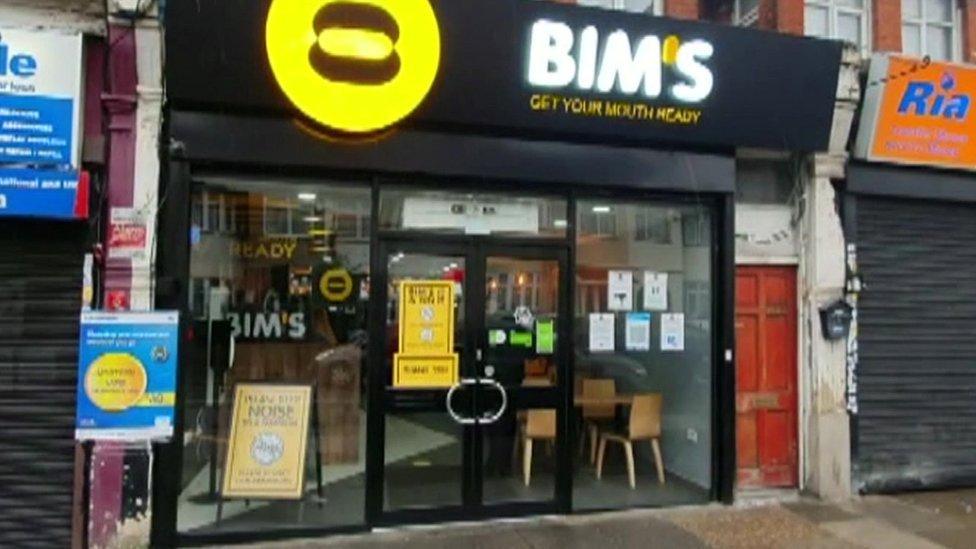Covid curfew: G-A-Y club owner starts judicial review bid
- Published
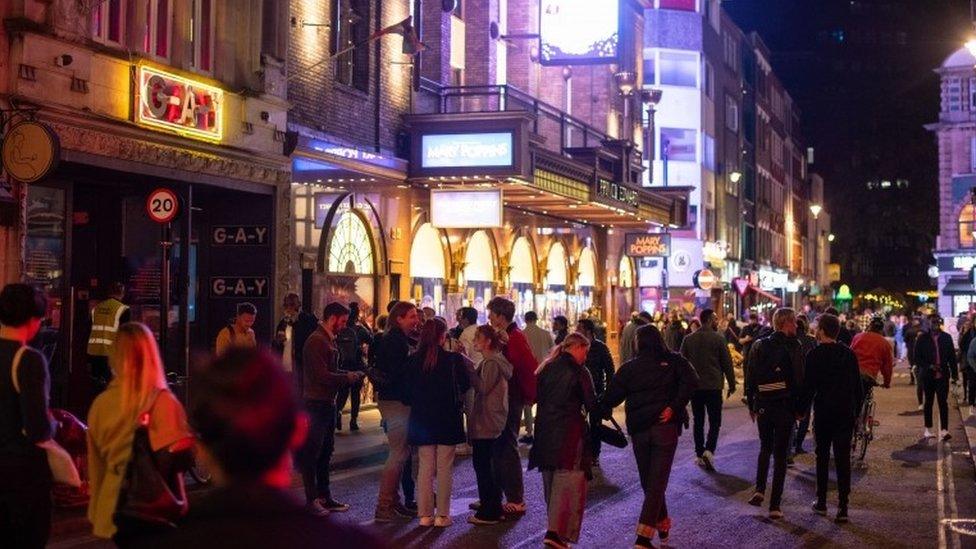
The nightclub wants to see the scientific evidence behind the 10pm curfew
The owner of the G-A-Y nightclub chain is formally challenging the 10pm curfew on hospitality venues.
Jeremy Joseph's lawyers have written to the government asking for the policy's scientific justifications ahead of a possible bid for a judicial review.
Mr Joseph said the restrictions showed the government "just don't care" about the hospitality sector.
The government said the curfew "allowed people to continue to socialise" while reducing the spread of coronavirus.
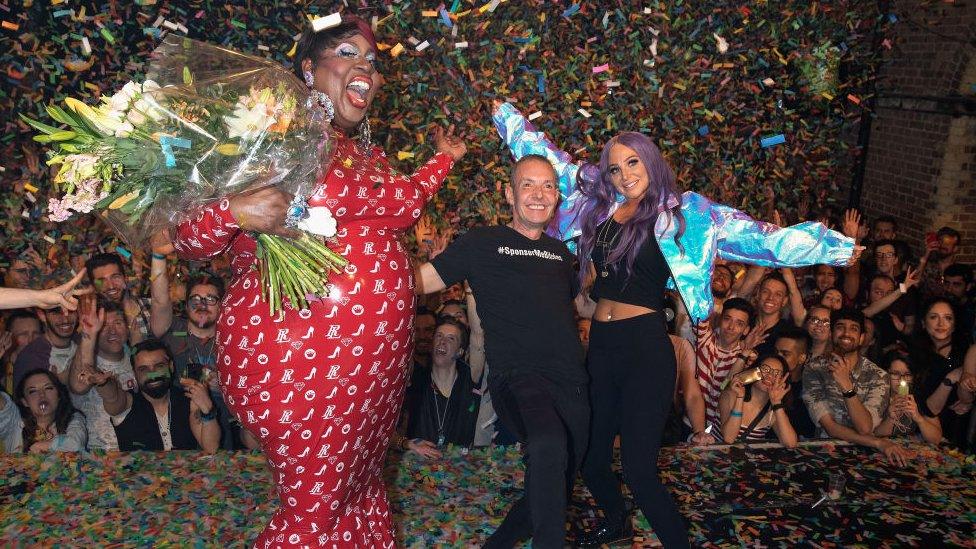
Jeremy Joseph (centre) says the 10pm curfew "makes no sense and there's no justification for it".
Under the restrictions, which came into force on 27 September, all pubs, bars and restaurants in England are to provide table service only and must shut no later than 10pm.
But concerns have been raised that the new curfew encourages customers to leave all at once and carry on drinking together.
Mr Joseph told the BBC: "The goalposts for venue and hospitality keep getting change. We feel like we're scapegoats and sometimes you have to take a stand.
"At a few minutes to 10pm everyone is kicked out at the same time and they're all the street together and they can't socially distance. How is that keeping people safe?
"If the government worked with us we can make this work, but they just don't care.
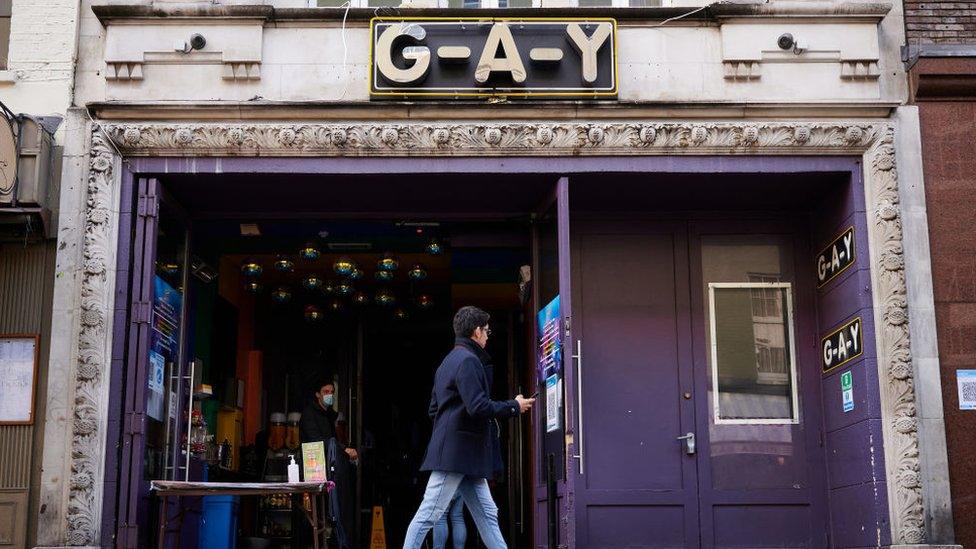
Jeremy Joseph owns the popular G-A-Y group, which has clubs in London and Manchester
In a letter before action (LBA) sent on Friday, Mr Joseph's legal team asked for "evidence of the scientific and rational basis for the decision".
The government has been given until Tuesday to respond before an application for a judicial review is launched.
A government spokesperson said: "Our measures strike a balance between saving lives by protecting our NHS and the most vulnerable and minimising the wider impact on the economy and schools."
- Published27 September 2020

- Published28 September 2020
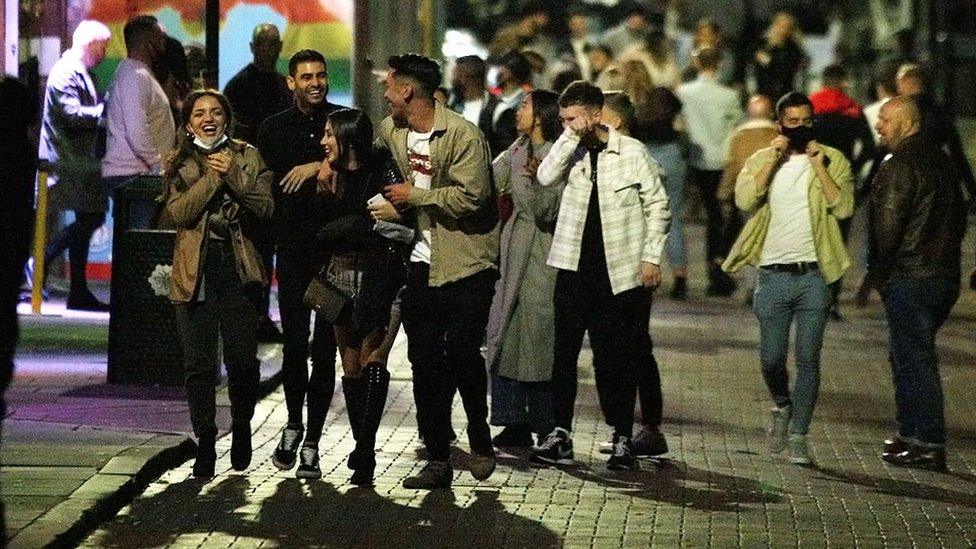
- Published5 October 2020
